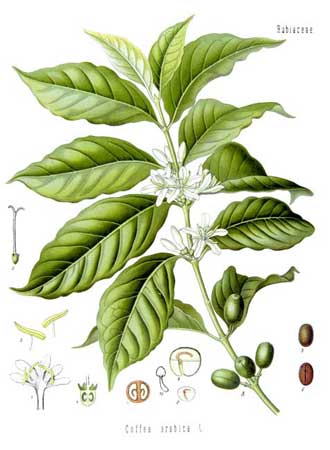Within the world of medicinal plants, we find a lingering debate between isolated compounds vs. whole plant extracts.
Which approach delivers more health benefits?
What are the strengths and weakness of each approach?
We know plants contain chemicals that engage our bodies in meaningful ways. This engagement produces a shift in our cellular biology and overall physiology. This shift can lead to improvements in our energy, stamina, mindset or overall health.
If anyone challenges you on this, remind them of coffee.

Coffee is a great example for this newsletter. Brewing coffee is an example of a whole bean extract. You capture all the coffee bean chemicals that release into your cup when extracted with hot water.
In contrast, you could just take a caffeine pill, which is essentially a single chemical isolated from the coffee plant.
We know caffeine is the primary chemical that activates our central nervous system. So, why waste time with the hundreds of other chemicals in the coffee bean? I’m not talking about taste or the ritual of brewing coffee. I’m talking about expediency and desired effect on physiology.
We see this debate today as we seek to discover new drugs with medical benefit.
I work in both the pharmaceutical industry and the wellness industry, so I see this issue from both sides of the coin. In general, the pharma industry takes the single isolated chemical approach…while the wellness industry often embraces the whole plant approach.
Scientific papers have demonstrated that whole plant extracts can deliver more health benefit that a single isolate. We see examples of this in the literature surrounding cannabis. Additional chemicals (terpenes, minor cannabinoids, etc.) in the plant can synergize with the principle chemicals (THC, CBD) to enhance specific health benefits (pain, inflammation, seizures, nausea.)
If you want to read scientific papers that speak to whole extract superiority, you can find that here and here.
That said, whole plant superiority is not the case for all plants.
Many plants contain toxic chemicals that must be removed as the whole plant supplement is being prepared. Black elderberry is a great example. This fruit is used as a natural approach for the flu and cold season. Unfortunately, the raw fruit contains glycoside chemicals that cause cyanide to build up in your body. Cyanide is a poison that can kill you.
For this reason, and many others, I don’t subscribe to the notion that a whole plant extract is inherently good while a single isolated chemical is inherently bad.
